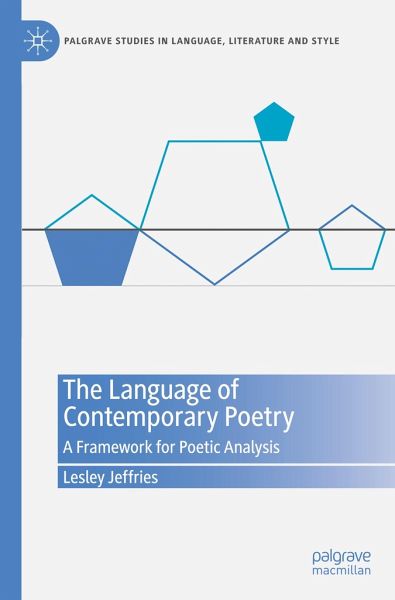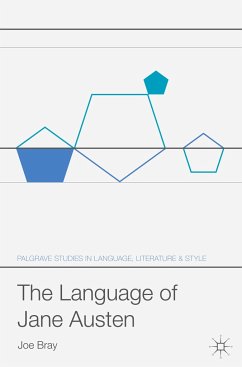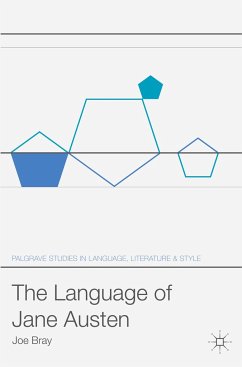
The Language of Contemporary Poetry
A Framework for Poetic Analysis
Versandkostenfrei!
Versandfertig in 6-10 Tagen
76,99 €
inkl. MwSt.
Weitere Ausgaben:

PAYBACK Punkte
38 °P sammeln!
This book introduces a new way of looking at how poems mean, drawing on the framework first developed in the author's book Critical Stylistics, but applied here to aesthetic more than ideological meaning. The aim is to empower readers of poetry to articulate the features of poetic language that they come across and explain to themselves and others why these features convey the meanings that they do. While this volume focuses on contemporary poets writing in English and mostly based in the UK and Ireland, the framework will work just as well for other eras' poetry, as well as for other cultures...
This book introduces a new way of looking at how poems mean, drawing on the framework first developed in the author's book Critical Stylistics, but applied here to aesthetic more than ideological meaning. The aim is to empower readers of poetry to articulate the features of poetic language that they come across and explain to themselves and others why these features convey the meanings that they do. While this volume focuses on contemporary poets writing in English and mostly based in the UK and Ireland, the framework will work just as well for other eras' poetry, as well as for other cultures and languages.














